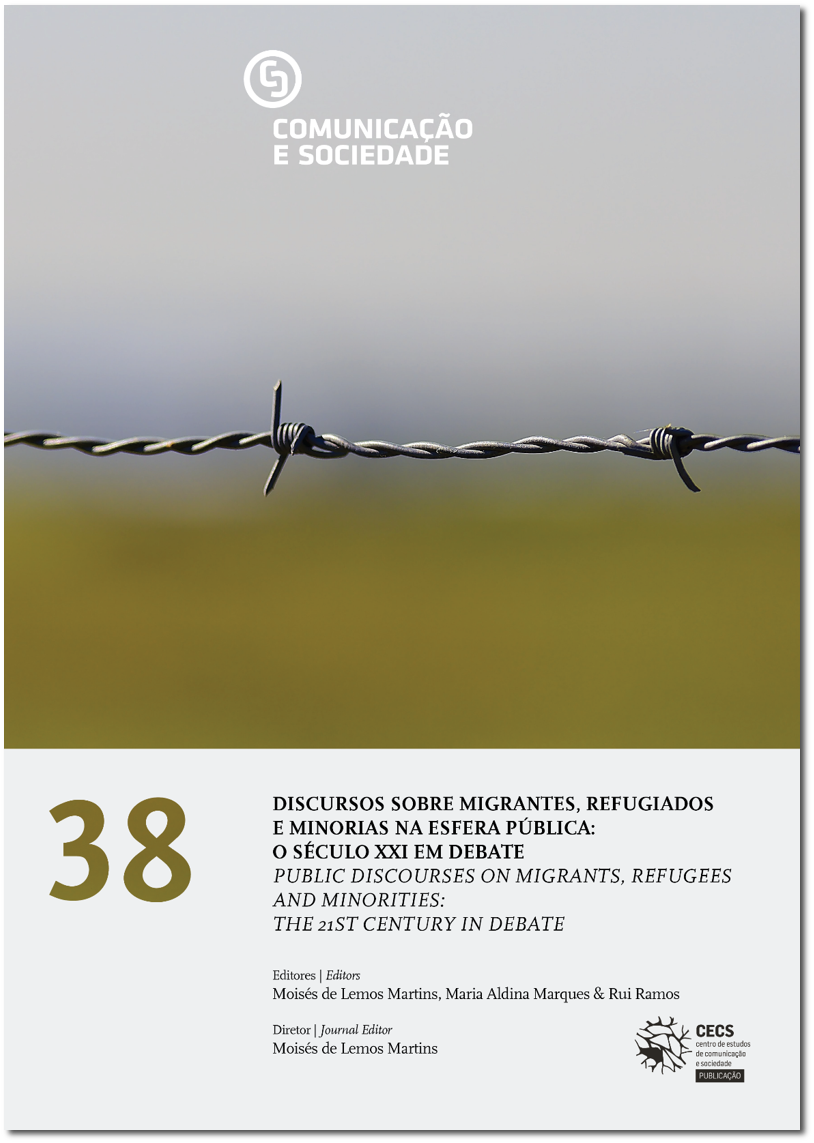Refugees in presidential political manifestos: between silencing and giving a voice
DOI:
https://doi.org/10.17231/comsoc.38(2020).2603Keywords:
refugees crisis, political manifestos, textual genre, ethos construction, discursive and political strategiesAbstract
The crisis of migrants and refugees in 21st century Europe has created new disagreements on the old continent that pose difficult challenges for the construction of European identity. Already classified as the most massive post-war humanitarian and migratory crisis, the reality of migrants and refugees has revealed a Europe unable to respond to the problem with a joint solution. In addition to the humanitarian aspect, often of dramatic contours exploited by the media, the phenomenon is also a source of friction between the institutions and the Member states of EU, threatening to become the trigger for a European political crisis and a new balance of forces between States. Given the centrality it has gained, the refugee crisis may also be viewed as a means of pursuing strategic advantage by different political factions, which extract significant dividends for their territorialisation from the issue. Europeanist discourses of tolerance and acceptance, based on the ideals of solidarity of the European project, coexist with extremist, xenophobic and anti-integration discourses. In the present reflection, we analyse how the electoral political discourse, of the textual genre political manifesto, encodes argumentatively the refugee question, focusing, for this purpose, four of the electoral manifestos of the candidates for the Portuguese presidential elections of 2016. Following the proposal of Adam (2001, pp. 40-41) for the characterisation of a genre (in semantic, compositional/structural, enunciative, pragmatic, stylistic and phraseological, metatextual, peritextual and material components), we confirm that there is unity and diversity in the analysed specimens. On the one hand, unity that enables recognising the different texts as manifestations of the same genre; on the other hand, diversity that translates/produces effects in the ethè and discursive/political strategies of each candidate. The refugee crisis is precisely one of the topics whose management diverges substantially from manifesto to manifesto, revealing specific discursive and political strategies.
Downloads
References
Adam, J. M. (2001). En finir avec les types de textes. In M. Ballabriga (Ed.), Analyse des discours. Types et genres: communication et interprétation (pp. 25-43). Toulouse: EUS.
Adam, J. M. (2008). A Linguística textual: uma introdução à análise textual dos discursos. São Paulo: Contexto.
Benveniste, É. (1966). De la subjectivité dans le langage. In Problèmes de linguistique générale I (pp. 258-266). Paris: Gallimard.
Campos, M. H. C & Xavier, M. F. (1991). Sintaxe e semântica do Português (pp. 361-379). Lisboa: Universidade Aberta. Retirado de https://area.dge.mec.pt/gramatica/umfimtriste/valoresmodais10.html#topo
Campos, M. H. C. (2004). A modalidade apreciativa: uma questão teórica. In F. Oliveira & I. M. Duarte (Eds.), Da língua e do discurso (pp. 265-281). Porto: Campo das Letras.
EsquerdaNet. (2015). Marisa Matias | Apresentação da candidatura à Presidência da República 2016. Retirado de https://www.youtube.com/watch?v=idiwx4L3xsk&index=40&list=PLYha99yG0g27Hnez8eQ6rt3Uef8ieIEgg
Giddens, A. (1991). Modernity and self-identity: self and society in the late modern age. Cambridge: Polity.
Kerbrat-Orecchioni, C. (1980). L’énonciation de la subjectivité dans le langage. Paris: Armand Colin.
Maingueneau, D. (2005). Ethos, cenografia, incorporação. In R. Amossy (Ed.), Imagens de si no discurso: a construção do ethos (pp. 69-92). São Paulo: Contexto.
Maingueneau, D. (2008). A propósito do ethos. In A. R. Motta & L. S. Salgado (Eds.), Ethos discursivo (pp. 11-29). São Paulo: Contexto.
Oliveira, F. (2003). Modalidade e modo. In M. H. M. Mateus; A. M. Brito; I. Duarte & I. H. Faria (Eds.), Gramática da Língua Portuguesa (pp. 245-247). Lisboa: Caminho.
Oliveira, F. & Mendes, A. (2013). Modalidade. In E. P. Raposo; M. F. B. Nascimento; M. A. Mota; L. Segura & A. Mendes (Eds.), Gramática do Português (vol. I.) (pp. 623-669). Lisboa: Edição Fundação Calouste Gulbenkian.
Pinto, A. (2012). Dialogismo, polifonia e heterogeneidade enunciativa nos manifestos políticos das presidenciais de 2011. Estudos Linguísticos/Linguistic Studies, 8, 195-212. Retirado de https://clunl.fcsh.unl.pt/wp-content/uploads/sites/12/2018/02/195_212.pdf
Pinto, A. G., Pinho, A. C. & Teixeira, J. (2017). Polarização e construção da força discursiva em manifestos políticos: o caso das presidenciais portuguesas de 2016. Linha D’Água, 30(1), 35-68. Retirado de http://www.revistas.usp.br/linhadagua/article/view/133203
Searle, J. (1969). Speech acts. An essay in the philosophy of language. Cambridge: Cambridge University Press.
Trčková, D. (2014). Representations of natural catastrophes in newspaper discourse. Brno: Masarykova univerzita. Retirado de https://digilib.phil.muni.cz/handle/11222.digilib/133015
Wodak, R. (2001). The discourse historical approach. In R. Wodak & M. Meyer (Eds.), Methods of critical discourse analysis (pp. 63-94). Londres: Sage.
Downloads
Published
How to Cite
Issue
Section
License
Copyright (c) 2020 Comunicação e Sociedade

This work is licensed under a Creative Commons Attribution-NonCommercial 4.0 International License.
Authors own the copyright, providing the journal with the right of first publication. The work is licensed under a Creative Commons Attribution 4.0 International License.











